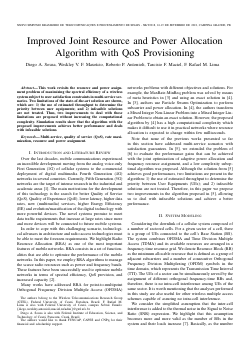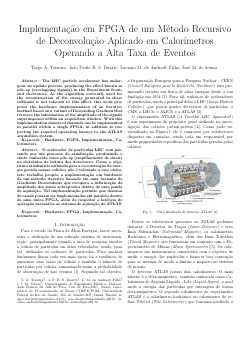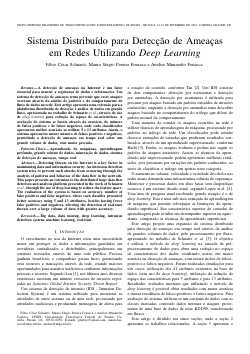
XXXVI Simpósio Brasileiro de Telecomunicações e Processamento de Sinais

Improved Joint Resource and Power Allocation Algorithm with QoS Provisioning
Diego A. Sousa, Weskley V. F. Maurício, Roberto P. Antonioli, Tarcisio F. Maciel, F. Rafael M. Lima
DOI: 10.14209/sbrt.2018.345
Keywords: Multi-service quality of service (QoS) rate maximization resource power assignment
Abstract
This work revisits the resource and power assignment problem of maximizing the spectral efficiency of a wireless system subject to user satisfaction constraints in multi-service scenarios. Two limitations of the state-of-the-art solution are shown, which are: 1) the use of estimated throughput to determine the priority between user equipments; and 2) infeasible solutions are not treated. Thus, two improvements to deal with those limitations are proposed without increasing the computational complexity. Simulation results show that the algorithm with the proposed improvements achieves better performance and deals with infeasible solutions.Download

Implementação em FPGA de um Método Recursivo de Deconvolução Aplicado em Calorímetros Operando a Alta Taxa de Eventos
Tiago A. Teixeira, João Paulo B. S. Duarte, Luciano M. de Andrade Filho, José M. de Seixas
DOI: 10.14209/sbrt.2018.346
Keywords: Hardware FGPA Implementation Calorimeters
Abstract
The LHC particle accelerator has undergone an update process, producing the effect known as pile-up (overlapping signals) in the Experiment frontend electronics. As the algorithm currently used for the reconstruction of the energy generated in these collisions is not tolerant to this effect, this work proposes the hardware implementation of an iterative method based on a variant of Descending Gradient that recovers the information of the amplitude of the signals superimposed within an acquisition window. With this implementation dozens of channels can be implemented in parallel within a single FPGA, in addition to respecting the required operating latency to the ATLAS acquisition system.Download

Sistema Distribuído para Detecção de Ameaças em Redes Utilizando Deep Learning
Fábio César Schuartz, Mauro Sérgio Pereira Fonseca, Anelise Munaretto Fonseca
DOI: 10.14209/sbrt.2018.347
Keywords: Aprendizado de máquinas aprendizagem profunda grande volume de dados mineração de dados sistema de detecção de ameaças tempo real
Abstract
A detecção de ameaças na Internet é um fator essencial para manter a segurança de dados e informações. Um sistema de detecção de ameaças tenta prevenir que esses ataques ocorram através da análise de padrões e do comportamento do fluxo de dados na rede. Este artigo apresenta uma extensão para a plataforma distribuída de detecção e análise de dados em grande fluxo, apresentada no trabalho de Schuartz et al., através do uso de deep learning para redução do espaço de características. A avaliação do sistema se baseia através da acurácia, do número de falsos positivos e de falsos negativos, onde cada classificador apresentou melhor acurácia ao utilizar 5 e 13 atributos. Ainda, o sistema apresentou menor número de falsos positivos e negativos, permitindo a detecção de ameaças em tempo real sobre um grande volume de dados, com maior precisão.Download